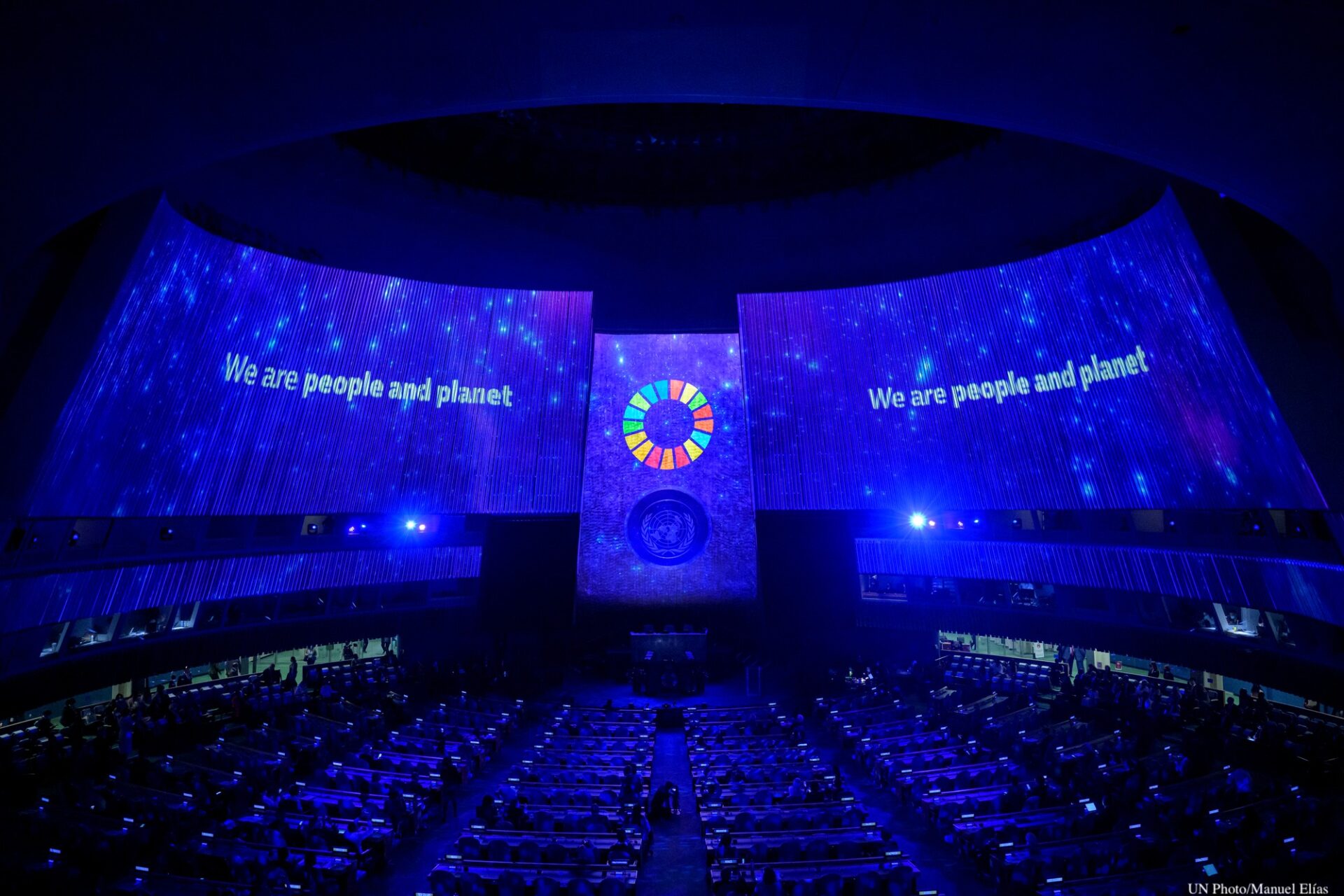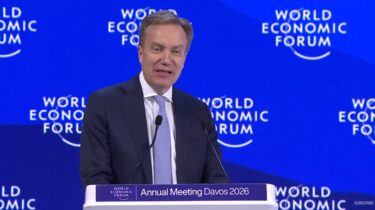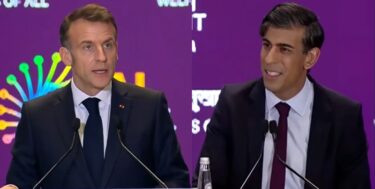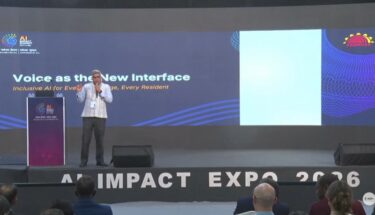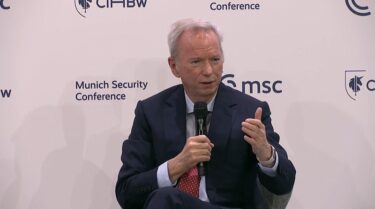United Nations’ policies on misinformation are about silencing dissent & criticism of Agenda 2030: perspective
The United Nations is encouraging online platforms and governments to quash narratives that “can threaten progress towards the Sustainable Development Goals,” aka Agenda 2030.
Ahead of next year’s UN Summit of the Future — a “once-in-a-generation” type of gathering — the unelected globalist body has published 11 policy briefs for its “common agenda.”
On the digital information front, the UN policy brief entitled “Information Integrity on Digital Platforms” outlines the UN’s desire for total narrative control over scientific and political content relating to climate and COVID as a matter of self-preservation with regards to achieving its 17 Sustainable Development Goals (SDGs) agenda by 2030.
“Across the world, the United Nations is monitoring how mis- and disinformation and hate speech can threaten progress towards the Sustainable Development Goals. It has become clear that business as usual is not an option”
UN POLICY BRIEF, INFORMATION INTEGRITY ON DIGITAL PLATFORMS, JUNE 2023
Even before declaring, “We own the science,” at the World Economic Forum (WEF) Sustainable Development Impact Meetings last year, the UN has been manipulating search results and narratives on COVID and climate, so that only UN-approved messaging appears at the top of Google search results.
Any information that contradicts the UN, including the World Health Organization (WHO), is considered to be misinformation.
Now, in preparation for next year’s “Summit of the Future,” the UN is establishing a “voluntary UN Code of Conduct for Information Integrity on Digital Platforms,” which is outlined in the Information Integrity on Digital Platforms policy brief.
This “voluntary UN Code of Conduct” is replete with policies aimed at silencing dissenting voices on digital platforms under the guise of mitigating “mis- and disinformation,” which is conveniently lumped-in with hate speech.
To give you an idea of the sheer size and scope to which the UN wishes to eradicate anything it deems “mis- and disinformation,” here are a few policy recommendations taken from the “Towards a United Nations Code of Conduct” section of the policy brief that calls-on not just member states, but private groups such as stakeholders (i.e. NGOs, businesses, academia, etc.), digital platforms, advertisers, and news media to do the UN’s bidding:
- All stakeholders should refrain from using, supporting or amplifying disinformation and hate speech for any purpose.
- All stakeholders should allocate resources to address and report on the origins, spread and impact of mis- and disinformation and hate speech, while respecting human rights norms and standards and further invest in fact-checking capabilities across countries and contexts.
- All stakeholders should promote training and capacity-building to develop understanding of how mis- and disinformation and hate speech manifest and to strengthen prevention and mitigation strategies.
- All stakeholders should take urgent and immediate measures to ensure the safe, secure, responsible, ethical and human rights-compliant use of artificial intelligence and address the implications of recent advances in this field for the spread of mis- and disinformation and hate speech.
- Member States should ensure public access to accurate, transparent, and credibly sourced government information, particularly information that serves the public interest, including all aspects of the Sustainable Development Goals.
- Member States should invest in and support independent research on the prevalence and impact of mis- and disinformation and hate speech across countries and languages, particularly in underserved contexts and in languages other than English, allowing civil society and academia to operate freely and safely.
- Digital platforms and advertisers should ensure that advertisements are not placed next to online mis- or disinformation or hate speech, and that advertising containing disinformation is not promoted.
- Digital platforms should ensure meaningful transparency regarding algorithms, data, content moderation and advertising.
- Digital platforms should publish and publicize accessible policies on mis- and disinformation and hate speech, and report on the prevalence of coordinated disinformation on their services and the efficacy of policies to counter such operations.
- Digital platforms should ensure the full participation of civil society in efforts to address mis- and disinformation and hate speech.
- News media should ensure that all paid advertising and advertorial content is clearly marked as such and is free of mis- and disinformation and hate speech.
In its own words, the UN is primarily concerned with what it deems to be “misinformation” because the unelected globalist body is worried about information that may affect “UN mandate delivery and substantive priorities,” especially when it comes to criticism of its Sustainable Development Goals.
According to the UN Summit of the Future: Our Common Agenda summary on “Integrity in Information”:
“The digital space is safer and more inclusive with all stakeholders protecting human rights, guided by […] a dedicated capacity in the UN Secretariat […] to respond to online mis- and disinformation and hate speech affecting UN mandate delivery and substantive priorities”
United Nations, Summit of the Future: Our Common Agenda, September 2023
So, what has the UN been doing to ensure that only its own narratives are pushed on big tech platforms?
As mentioned earlier, the UN partnered with Google, TikTok, and other platforms to manipulate search results and content that ran counter to the unelected globalists’ narratives on COVID and climate.
Now, a year after telling the WEF, “We own the science, and we think that the world should know it, and the platforms themselves also do,” UN Under-Secretary-General for Global Communications Melissa Fleming is lamenting the fact she can’t call up someone at Twitter/X to “flag content that is abusive.”
“Climate mis- and disinformation can be understood as false or misleading content that undercuts the scientifically agreed basis for the existence of human-induced climate change, its causes and impacts”
UN Policy Brief, Information Integrity on Digital Platforms, June 2023
The UN Policy Brief on Information Integrity on Digital Platforms, which never once points to one single, solid example of misinformation or disinformation, shares the same sentiment as Fleming while conflating “misinformation” and “disinformation” with “hate speech” stating:
“The impacts of online mis- and disinformation and hate speech can be seen across the world, including in the areas of health, climate action, democracy and elections, gender equality, security and humanitarian response”
UN Policy Brief, Information Integrity on Digital Platforms, June 2023
In the same vein of lumping hate speech with dissenting voices on scientific and political issues, UN Secretary-General Antonio Guterres recently declared:
“Digital platforms are being misused to subvert science and spread disinformation and hate to billions of people. This clear and present global threat demands clear and coordinated global action”
Antonio Guterres, United Nations, SEptember 2023
“Many victims of COVID-19 refused to get vaccinated or take basic health precautions after being exposed to mis- and disinformation online”
UN Policy Brief, Information Integrity on Digital Platforms, June 2023
Ultimately, the United Nations is against any information that contradicts or gets in the way of the unelected globalists’ narrative relating to Agenda 2030 and the Sustainable Development Goals — the two biggest recent examples being related to health/COVID and climate.
“Mis- and disinformation about the climate emergency are delaying urgently needed action to ensure a liveable future for the planet”
UN Policy Brief, Information Integrity on Digital Platforms, June 2023
If you criticize net zero policies, the COVID control narrative, vaccine passports, or digital ID, then you are spreading dangerous misinformation that hinders the agendas of the United Nations and other unelected globalist entities.
Image source: UN Photo/Manuel Elias



